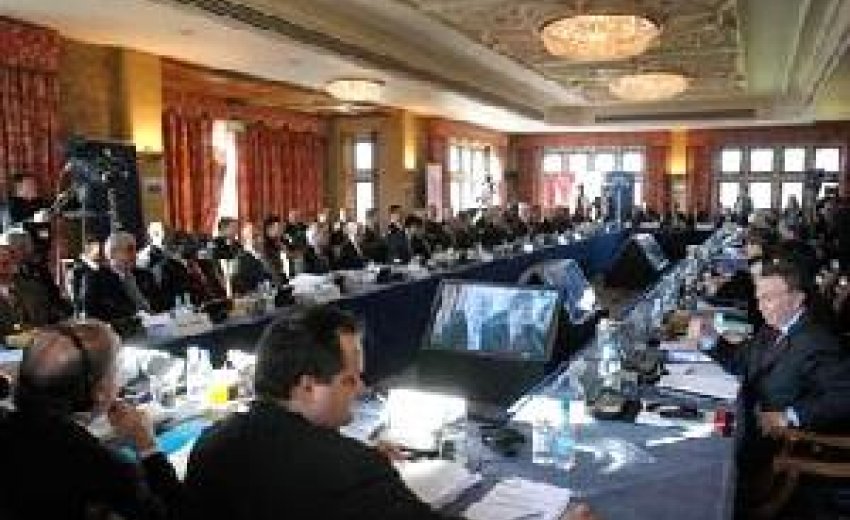 Not much could have been expected from this G20 summit. Despite the urgency of a global economy going rapidly over the cliff, there is still too much disagreement about most issues among the members. Even so, the resulting communiqué – released with so much fanfare – is deeply disappointing.
Not much could have been expected from this G20 summit. Despite the urgency of a global economy going rapidly over the cliff, there is still too much disagreement about most issues among the members. Even so, the resulting communiqué – released with so much fanfare – is deeply disappointing.
There is deafening silence on the fiscal front, with no clear commitment to coordinated fiscal stimulus – just some vague statements. There are politically correct noises about tax havens, banking secrecy and financial regulation, but since small print matters crucially in these matters, the statements are too general to be meaningful.
The only apparently concrete commitment is to poor countries that have been thrown into crisis by the global turmoil, through pledges of $850bn in new funds. This sounds like a reasonable amount, but how much of it is for real? And how unconditional will such money flows be?
Not much, it turns out. To begin with, the proposed new allocation of special drawing rights (SDRs) – $250bn – is to be a general allocation, based on existing quotas. So the bulk of it will go to … the G20 countries! Helping poor countries get more would require a special issue of new SDRs – something that was proposed in the International Monetary Fund in 1997 but vetoed by the US, and held in abeyance ever since.
Much of the rest of the money will be conditional lending from the IMF, which has recently distinguished itself only by its utter failure to prevent or deal with financial crises in emerging markets because of its aggressively pro-cyclical conditionalities. Indeed, the single greatest beneficiary of this G20 meeting must be the IMF, which would otherwise have been on life support as a global player.
Meanwhile, G20 has completely ignored the recommendations of the Stiglitz Commission on international financial reform set up by the more democratic international body, the UN General Assembly. Just a few weeks ago, this commission recommended a new special allocation of SDRs, along with a new credit facility for development funds, strengthening regional initiatives and providing 1% of all stimulus packages as official development assistance. These would actually have made a much more positive difference to developing countries than the self-aggrandising posturing of G20.
Even the G20’s commitment to avoid protectionism sounds ominous for developing countries, as it is combined with the goal of “reaching an ambitious and balanced conclusion” to the World Trade Organisation trade negotiations, which can only mean forcing more trade liberalisation – which has already led to agrarian crisis and de-industrialisation in much of the south.
The basic problem, though, is that the G20 has not produced anything like the response needed to pull the world economy out of this unprecedented mess. Clearly, the idea is to put back the broken pieces somehow, to produce more of the same pattern of growth as before. That is neither desirable nor sustainable, and will rapidly run into crisis once more, at tremendous human cost. What a pity that the would-be leaders of the world have shown so little generosity or imagination.
